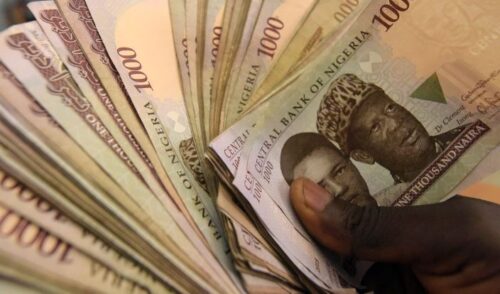The Nigerian naira, previously ranked among the world’s weakest-performing currencies in 2024, is gradually regaining stability. This improvement comes on the heels of critical policy reforms by the Central Bank of Nigeria (CBN) under the leadership of Olayemi Cardoso, according to a recent report from PwC. In its 2025 Budget and Economic Outlook report released on Thursday, PwC outlined five key factors driving the naira’s recovery and easing pressure on the foreign exchange market. These reforms have bolstered investor confidence, enhanced transparency, and improved liquidity.
The factors stabilizing the naira include;

Price Discovery
The CBN’s decision to unify Nigeria’s multiple exchange rates into a single rate has been crucial. Previously, multiple exchange rates created opportunities for arbitrage and market distortions, leading to uncertainty. By aligning the naira’s value with market fundamentals, the CBN has created a more predictable and stable foreign exchange market.
Transparency and Market Friction
Transparency in forex operations has markedly improved under the current CBN administration. Reforms such as the elimination of bureaucratic bottlenecks and the introduction of clearer guidelines for forex transactions have made it easier for businesses and investors to access foreign exchange. The launch of the Electronic Foreign Exchange Market System (EFEMS) and the new FX Code by the CBN are critical steps in improving transparency and ensuring smoother operations for authorized dealers in the Nigerian exchange rate market.
Liquidity Improvements
An increase in Nigeria’s dollar inflow has significantly contributed to stabilizing the naira. In December 2024, Nigeria’s daily average oil production rose to 1.49 million barrels per day, contributing to higher foreign reserves. Capital importation increased to $1.25 billion in the third quarter of 2024, reflecting a 91.35% rise compared to the same period in 2023 and the diaspora remittances via International Money Transfer Operators (IMTOs) reached $4.22 billion from January to October 2024, almost doubling the $2.62 billion recorded in 2023.
Addressing Supply-Demand Backlogs
The foreign exchange market had faced an estimated $7 billion backlog of unmet orders. However, the CBN has made significant progress in addressing these backlogs, further restoring market confidence and increasing liquidity for businesses and investors.
Renewed Market and Investor Confidence
Historically, the lack of transparency and the existence of a multiple exchange rate system discouraged both foreign and local investors. However, the reforms under the current administration have restored confidence, with the International Monetary Fund (IMF) acknowledging improvements in Nigeria’s capital markets. PwC noted that global portfolio investors are once again considering Nigeria as a viable destination, signaling a renewed interest in the country’s economic prospects.
The Nigeria Economic Summit Group (NESG) predicts that the naira will maintain relative stability throughout 2025, averaging ₦1,300 per U.S. dollar, provided these reforms continue. The combination of increased oil production, foreign investments, and improved regulatory frameworks is expected to sustain this momentum.


